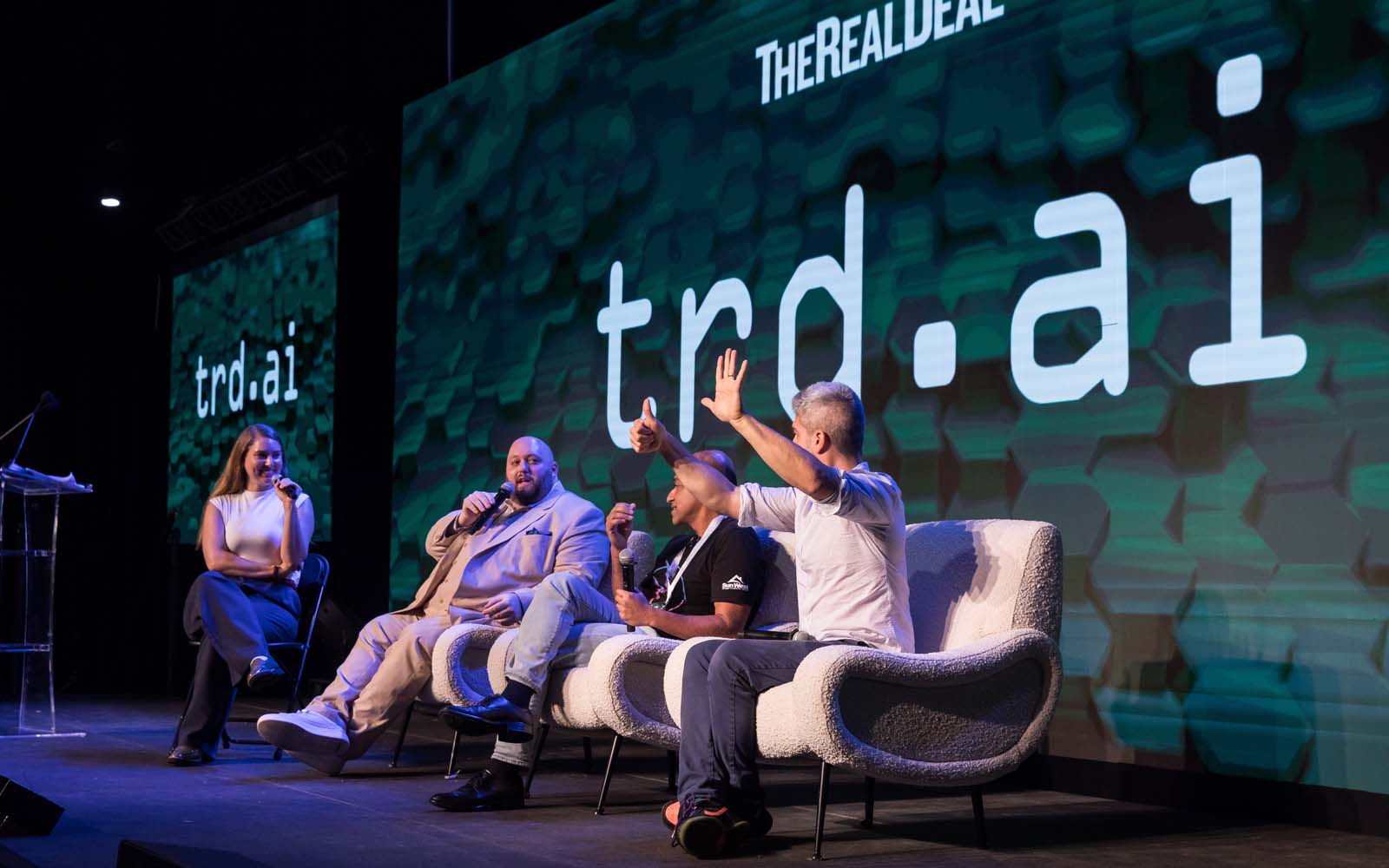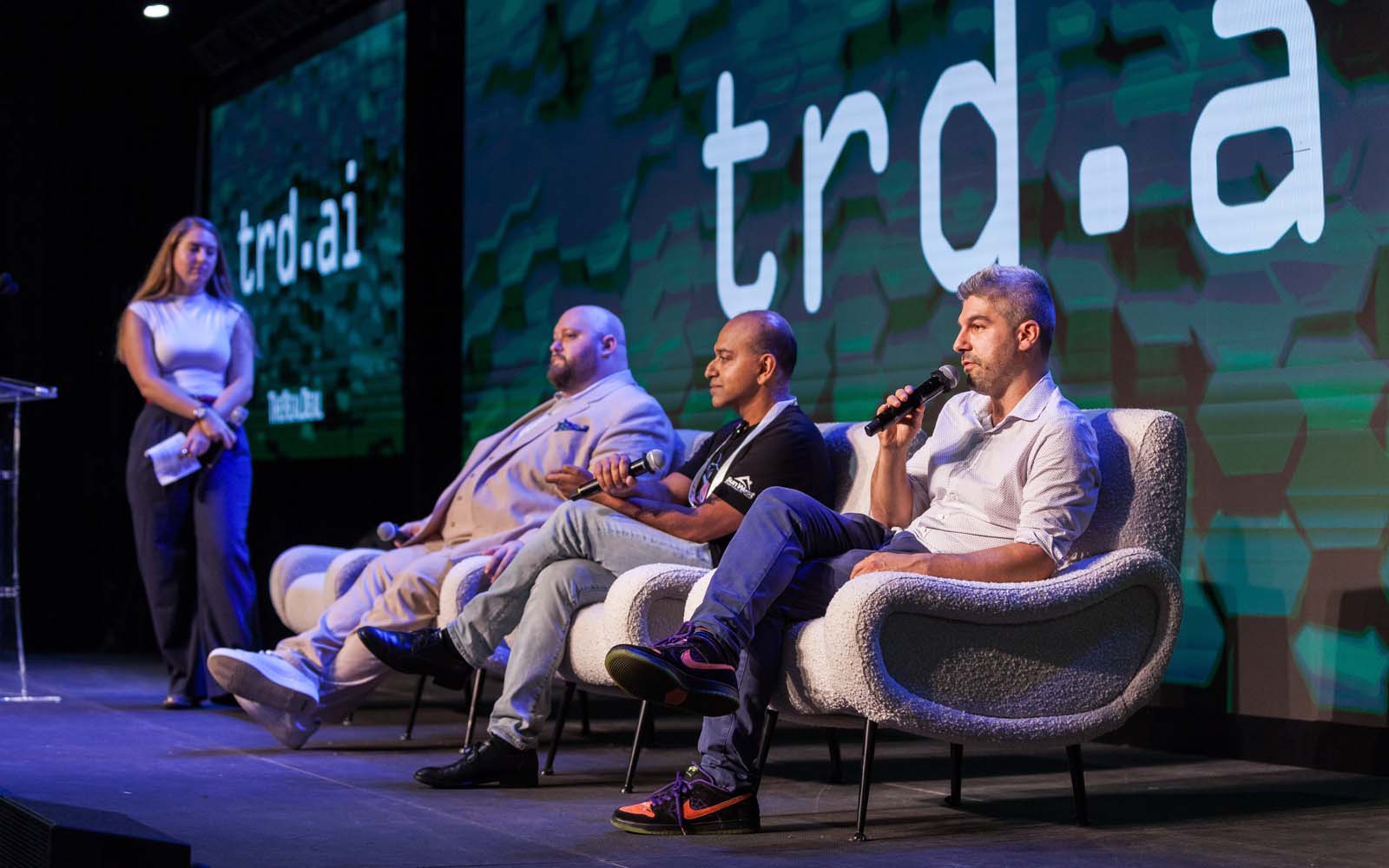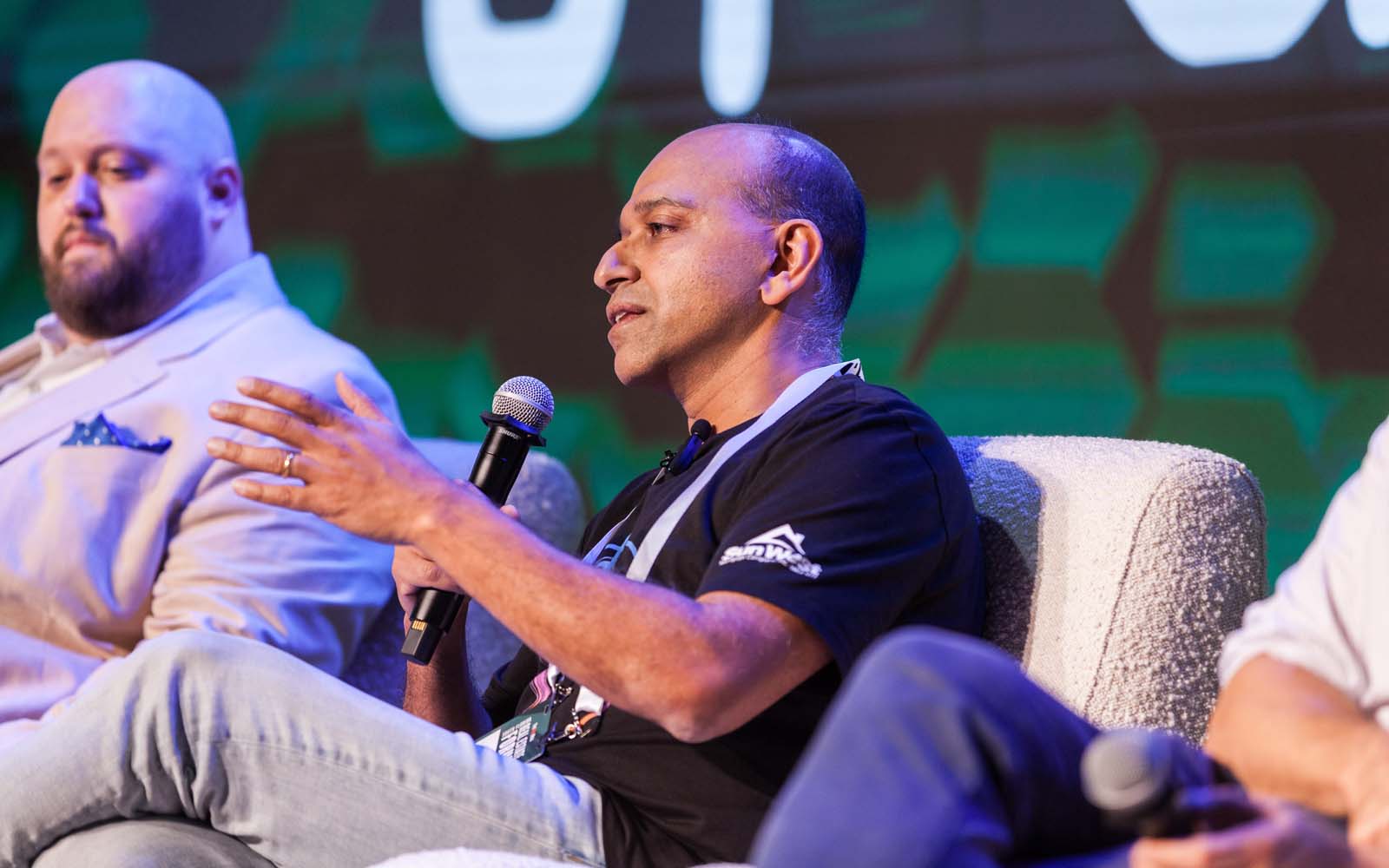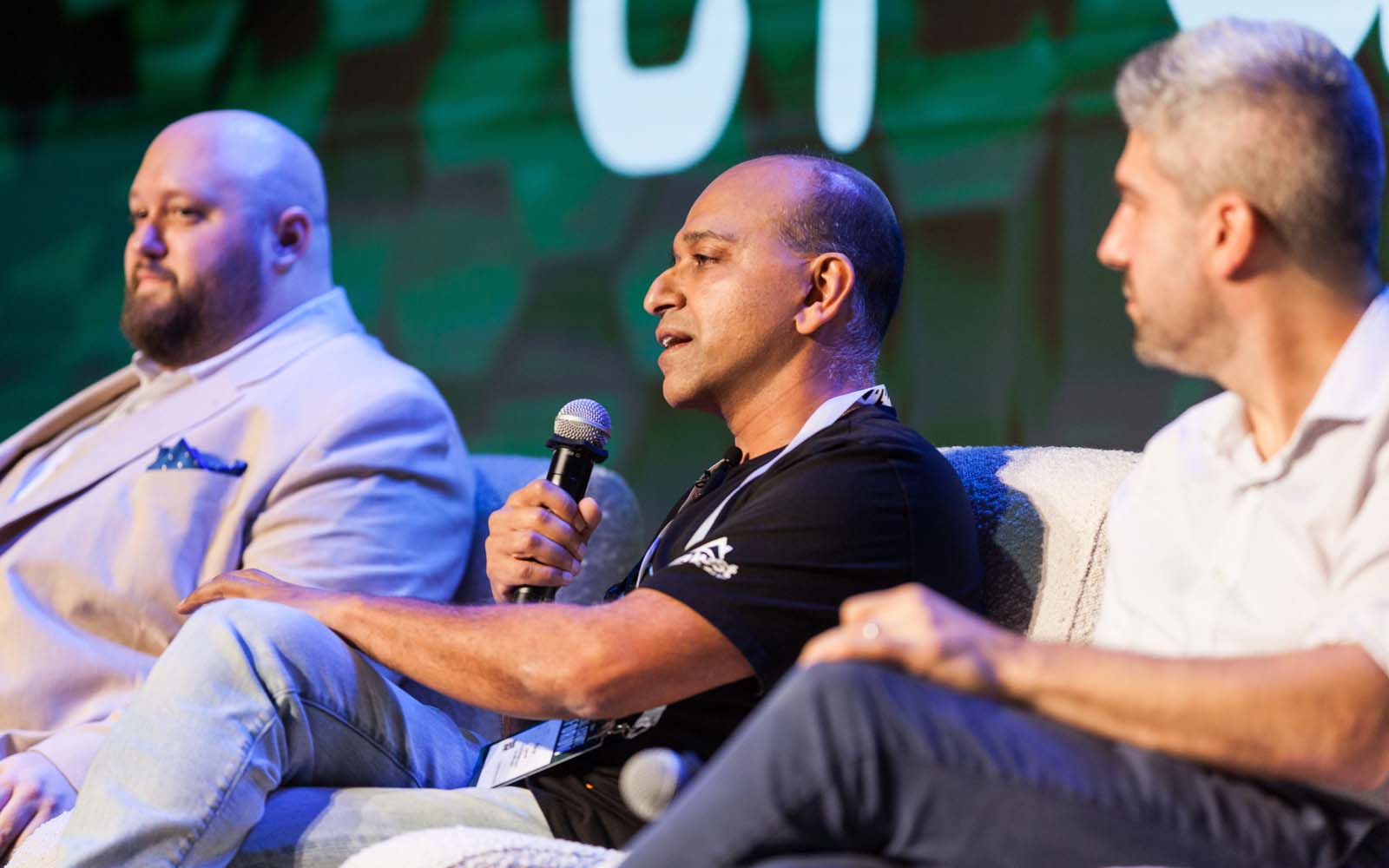Artificial intelligence has been on the minds of most real estate professionals for at least the past year, but like most technologies, it’s evolving so rapidly that it’s hard to keep up with and understand all of its use cases.
“Try to keep your brains contained inside your skulls,” Ryan Coyne, Serhant’s chief technology officer, said before explaining what generative AI — which uses data to train models to make predictions, solve problems, create text, images and other media — can do for real estate.
Trained on current market data, with context on the region and the individual agent, Coyne said AI can provide buyer archetypes, marketing plans, pre-written copy and psychological analysis of apprehensive sellers.
Along with Coyne, Pavan Agarwal, president and CEO of Sun West Mortgage Company and Celligence International, and Zach Aarons, founder and general partner of MetaProp, discussed the early landscape of AI technology in real estate, how to implement the tools across the industry and what it all means for the future of the business at The Real Deal’s trd.ai event in Miami on Nov. 10.
Anxieties about AI and its potential dangers have often dominated the narratives around the technology. Earlier this year, leaders from top AI firms warned that generative models pose an extinction risk to humanity, the New York Times reported.
The panelists, however, downplayed these concerns.
“I’m not as concerned as other people, maybe that’s naive,” Aarons said. Coyne asserted that Serhant’s use of AI will empower agents, not replace them.
Agarwal did not shy away from his AI’s impact on his company’s labor needs.
“[My] staffing is down to engineers,” he said of Sun West Mortgage, which vets, approves and issues mortgages based on its Angel AI model. “No processors, no underwriters, no closers.”
Agarwal also noted the potential impact of AI regulations, specifically the executive order issued by President Biden in October, which seeks to institute safety standards, protect workers and notably, label content generated by AI. Agarwal warned the regulations could hamper some firms’ ability to integrate the technology.
“It’s a game changer,” he said, “In my opinion [it] draws a line.”
Aarons said he is more invested in the debates around copyright infringement and intellectual property theft that have cropped up in the past year. Panelists referenced the lawsuits brought by artists and Getty Images against image generators Stability AI and Midjourney, alleging theft of intellectual property.
“We have precedent for fair use, we have precedent for transfer of ownership, we also have ‘courtesy of,’” said Coyne. “We need to apply some common sense things.”
Legal and ethical issues aside, the panelists encouraged industry professionals to learn about large language models (LLMs) to better understand how they can adopt the tools. Models trained on industry-specific data and designed to specialize in a certain topic will become the norm, they agreed.
Training LLMs are “a lot like raising a child,” Coyne said. Except they don’t eat peas and carrots, they eat data.
Firms need to maintain clean, organized datasets to accurately train models, according to the panel. Data errors can create massive hallucinations, a term for when LLMs perceive non-existent patterns and generate nonsensical, useless outputs, Aarons said.
While many are eager to know how models can predict things like which market is the next Nashville, Aarons said successfully optimizing AI requires less complex goals.
“Focus on things that are simple and achievable, like writing marketing copy,” he said. “Training these models on where cap rates are going … good luck.”
Read more


















